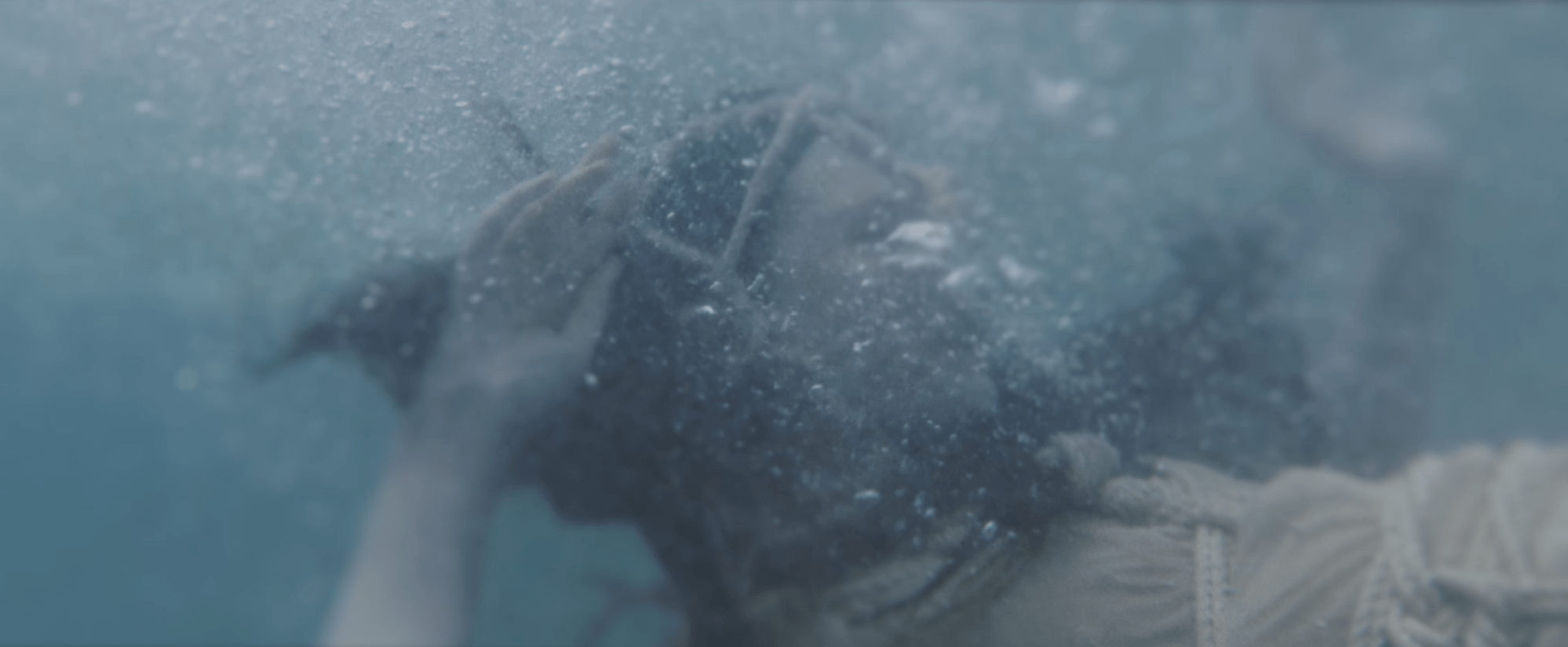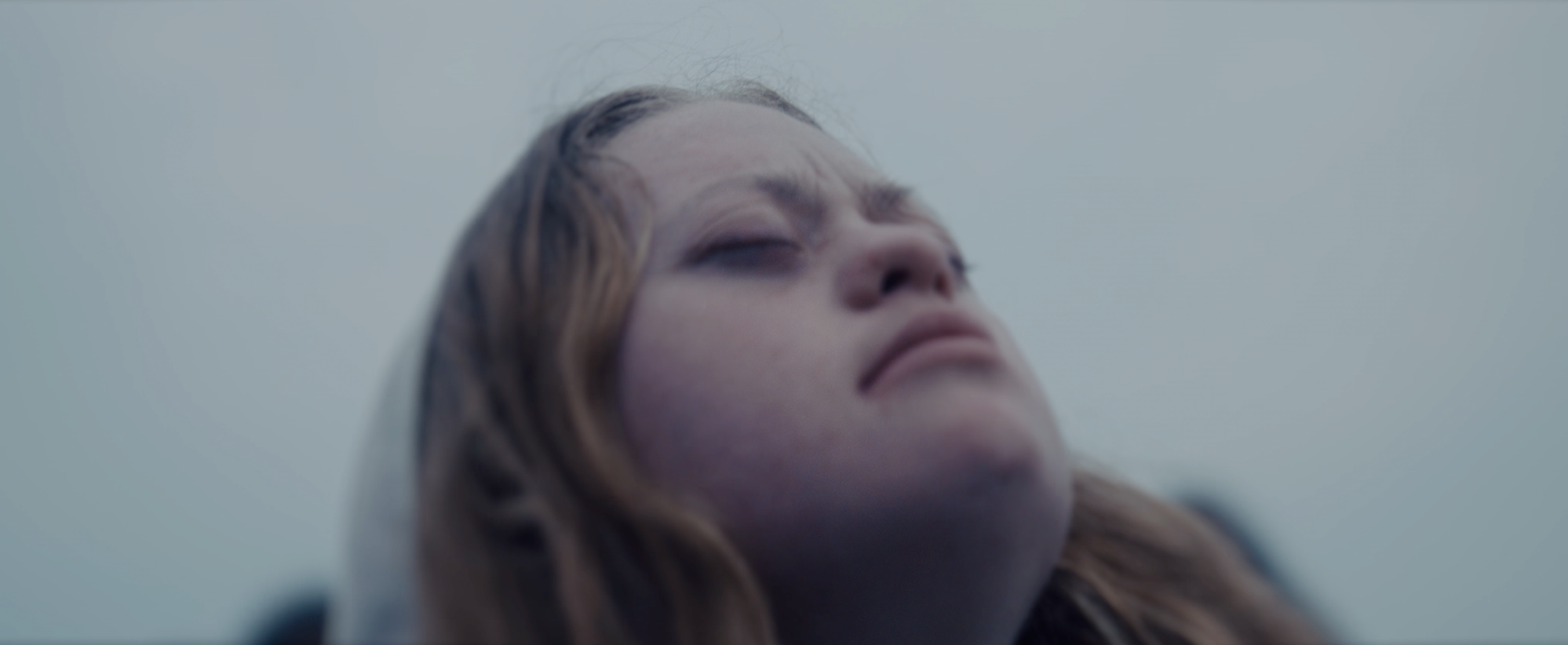Cloudy Rhodes is a young gender-queer photographer and award-winning director whose approach to filmmaking is honest and inclusive. They’re known for their stories celebrating diversity and creating a platform where minorities are meaningfully represented. Cloudy’s latest short film Deluge, is a powerful story of feminine sentiment and resilience set in a dystopian world by the sea. At the core of the story are three spirited women who combine forces to overcome abuse within a religious cult.
Through a combination of disorientating cinematography and unnerving sound design, Cloudy cleverly illuminates historically ingrained issues of abuse within minority groups, aligning the story strongly with the #metoo movement and exploring issues surrounding mental and sexual abuse within disabled communities and marginalized groups by liberating, empowering and validating their experiences.
Deluge was written by Llewellyn Michael Bates and was co-produced by Jess Carrera of Dollhouse Pictures and award-winning producer, and mentor to Cloudy, Justin Kurzel (Snowtown). The team won funding under Create NSW, as a part of a suite of initiatives to create opportunities for Australians with disabilities in the screen sector. Through strong female leads including actress with down syndrome Kayla Donaldson, Skye Wansey (Top of the Lake) and Sophie Lowe (Beautiful Kate), Cloudy authentically constructs a tribute to female resilience and power. We spoke with Cloudy to find out more about their filmmaking and what inspires them to speak out for gender-queer and marginalised communities.
Did you always want to be a filmmaker?
I have always known I’d be an artist. I went to a Steiner school and both my parents are artists. I studied painting before I moved towards photography. I guess I’m really sentimental and felt a desire to document and preserve moments. My photographs always felt like moments from a film, like there was a story on either side. A few people, including Justin Kurzel, urged me to start making films. It really feels like my calling now.
Your films and photography almost always involve the power of the ocean, would you say your upbringing by the sea influenced the subject matter of your work?
For sure. I grew up surfing and I feel like that informs everything I make. I am drawn to stories around the coast and in nature. My aesthetic is also informed by connection to the ocean, particularly the colour palette, as well as my approach to camera movement. I’m always trying to emulate the feeling of floating, basically the way that I feel when I’m surfing.
What inspired a shift away from editorial projects with brands to more long-form narrative projects such as your short films Lo Loves You, Sink and now Deluge?
Editorial projects are always interesting collaborations and I am so grateful to have worked with so many dope platforms and brands. It can be limiting at times when you have so much more to say. There are so many important stories that need to be told and narrative filmmaking is the way I want to express that and It’s an exciting move for me.

Your new film Deluge is very much aligned with the #metoo movement and has strong themes exploring abuse and historically ingrained religious biases. Why did you want to incorporate these ideas in your short film?
I wanted to make a film about female endurance and bravery and the power harnessed in rising up and speaking out against abusers. Deluge has such a powerful feminist sentiment of redemption and resilience, which is so intrinsic to the female experience. It’s an aspect I am always trying to uncover in my work. I was also completely shocked by the statistics of abuse towards women with an intellectual disability and I want this film to help raise awareness around the issue. I’m really proud to have been involved in a film that also has a strong social message.
Why is it important for you to represent a diverse cast and be inclusive in your filmmaking?
As a gender-queer gay woman, diverse representation on screen is so important to me. Stories belonging to minorities and marginalised people liberate and empower those groups by validating their experiences. This motivates me to make films. Disability is massively underrepresented on screen. I had the opportunity to work with Llewellyn, an incredible writer with a disability, and Kayla who plays the film’s hero who has Down Syndrome. Being involved in inclusive filmmaking is ultimately what drew me to Deluge.

The film features elements of dystopia and ambiguity of time through the setting and costume. Why did you make this choice and who did you look towards for creative inspiration?
I wanted to play with the idea of a post-climate change dystopian future. I worked with designer Elizabeth Gadsby from the Sydney Theatre Company to create the to create a dystopian reality with a distinct aesthetic beauty. I was also inspired by the artist Rita Minissi and her The Virtual Embalming of Michelle Lamy. The use of BDSM rope tying was an aesthetic and symbolic choice speaking to sexuality, domination, submission and power. We worked with artist Garth Knight to do all the rope work.
If there was one thing you would like to see changed in the film industry, what would it be?
I’d like to see the film industry represent the amount of diversity that exists. I feel like this can be achieved through inclusion riders and by more filmmakers choosing to work for and with minorities. My mission for my next project is to open peoples’ minds to the diverse experience of gender, I’m really excited to show people more of my own world and experience.
This article has been updated throughout to reflect Cloudy’s subsequent pronouns.
